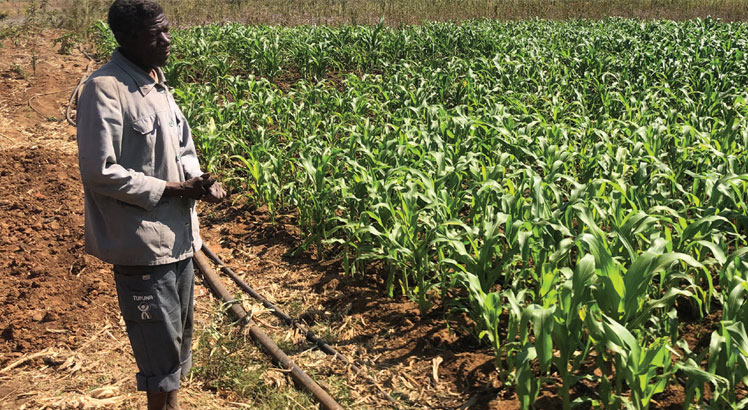From fish thieves to fish farmers
Ulaya Village lies between Malawi’s two Southern cities of Blantyre and Zomba. It is located a few kilometres from Walala Trading Centre in Chiradzulu District.
Being closer to the cities, has not saved the people from Ulaya Village in Traditional Authority Mpama from poverty that most people in Malawi, especially those in the rural areas face.
Community members confess that over the years, one way of dealing with their poverty had been stealing fish and farm crops at the nearby farm. That has all changed now.
“We used to steal from the farmer who owns a forest. He has fish ponds so we would go there and steal. We were getting into trouble oftentimes,” explains 44-year-old Petro Kumbanga.
He said they realised it was not a good thing to do so they went to their traditional leaders to ask if they could allow them to have their own ponds.
Kumbanga adds: “The tradiitonal leaders gave us land. We started digging one pond but had no knowledge so we approached World Vision Malawi who sent us to learn how to make fish ponds in Mulanje.
“We came back and mobilised people to finish the pond we had started.”

World Vision Chiradzulu district coordinator Monica Macheso says when the ponds were ready the organisation provided them with fingerlings for their start up.
“We were impressed that they were the ones looking for support and not us or the government forcing them to do something about their poverty.” she says.
The first harvest was not successful according to the farmers but this did not discourage them.
They went back to World Vision Malawi for help. They received tools to dig a second pond with the organisation’s contribution.
“We also linked them with the Department of Fisheries in the district who sourced fingerlings for them. We then trained them in business management so that they know how to operate their group as a profit making organisation.” says Macheso.
The second attempt was fruitful and the farmers, who also have an irrigation scheme sponsored by World Vision Malawi, started enjoying the fruits of their work.
“We have started making money from the ponds. Last season we harvested 100 kilogrammes (kg) of fish from the first dam, second dam gave us 50 kgs and the third dam produced 250 kgs,” explains Kumbanga.
The group is now raising and selling fish fingerlings, thanks to the training they received from World Vision Malawi.
Kumbanga says: “As we speak, we have an order for 15 000 fingerlings from farmers in Mangochi. We no longer buy fingerlings. We are producing them here for use and we sell the rest.”
Realising that fish farming alone would not be enough for the community, the organisation helped the farmers start a small-scale irrigation scheme. They are now growing different crops throughout the year. The scheme also provides clean water to households in the village.
Eliza Mtambalika, a 36-year-old mother of three says the coming of World Vision Malawi in the community has transformed many lives.
Through proceeds from the sale of fish and produce from the irrigation scheme, many people now have assets that are supporting families.
“I have bought a motorcycle which I use as a taxi I also built a modern house,” she says.
The farmers also formed village savings and loans group which is helping them grow their money.
Almost everyone in the village now owns livestock, according to Kumbanga.
“Some have bought goats, others pigs while others have built houses. I can say 90 percent of us have seen a change in our lives. I have a good house connected to solar electricity. I also own a television set. People help me with work so they can watch the television. I also rear goats,” he says.
Ulaya Area Development Committee vice-chairperson Lenson Sambani says since 2019, World Vision Malawi has provided water through irrigation schemes and boreholes, supported children in schools, provided farmers with livestock for food and manure and rehabilitated roads through food for work programmes.





